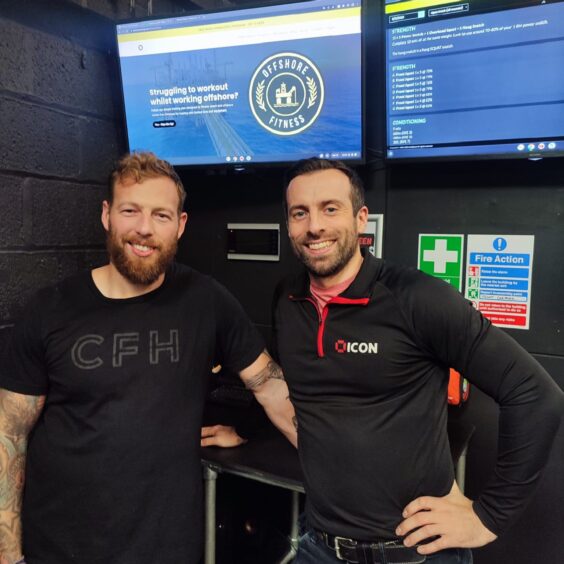
New fitness company Offshore Fitness is aiming to help industry workers overcome the challenges they face staying active on the job.
Offshore Fitness provides training programmes and nutrition advice specifically targeted at offshore workers.
Health and fitness challenges are a growing problem in the offshore industry, with the average weight of workers increasing from 75kg in 1975 to 99kg in 2023, according to data from TAC Healthcare.
As a result, industry leaders are having to address health and safety risks ranging from lifeboat capacity to helicopter safety procedures as well as upgrading medical equipment.
The training programmes put together by Offshore Fitness are designed to require minimal time and equipment so they can be easily followed both at home and offshore.
Offshore schedule impacts fitness routines
The idea for the business came from co-founder Dan Simpson’s experiences when returning home to Hull after working offshore in the North Sea.
In the first few days back onshore, he found returning to the gym would often be a struggle.
Conversations with fellow co-founder and gym partner Shaun Gibbins would inevitably turn to the difficulties he had sticking to his training regimen while working as an electrician and rope access technician offshore.
Without access to the same equipment and nutrition options he had back home, Dan said he found it difficult to stick to his gym routine at work.
“I just found when it was a small gym (offshore), there’s not a lot of equipment and then I was always having to wrack my brains for ways I can change what I’m doing to fit around that,” he said.
“Changing from a barbell to a dumbbell, if I can’t run then I’ve got to row or bike.
“Sometimes the gyms are so small that you can’t even get in (when it’s busy), so sometimes I have to go to my room to do some exercises.”
Dan said one of the main challenges offshore workers faced was developing a fitness routine at home, only to have their routine disrupted when arriving back at work.
The changes in available equipment, sleep schedules and food often made it difficult for Dan to stay motivated, particularly towards the end of a three-week stint.
“When I first started going to the gym at home, sometimes I would get offshore and think, ‘I can’t do anything in this gym’,” he said.
“Then I’d just find myself sitting in my room and probably having a chocolate instead.”
Offshore fitness community leads to business idea
Looking for ways to keep himself motivated, Dan started to get his colleagues offshore to join him in the gym.
“When I would be training offshore with friends or with anyone that’s in the gym, just getting them involved with me would make it easier.” he said.
Adding a social element to his workout routine not only kept him more committed, Dan also found it had benefits for his mental health as well.
“When there’s a few of you doing some workouts, and you end up creating a little community almost, and you train every day, meeting at the same time, it’s just good for your mental health and socialising,” he said.
Over time, as more of his colleagues began to take an interest in joining in, Dan soon found himself being asked to put together training programmes.
“It just sort of took off a little bit when I was out on platforms,” Dan said.
“People would say, ‘oh it’s improved my golf game, I feel better when I’m at home, can you do me some extra ones?’.”
As more people began to reach out for tips, and they continued receiving positive feedback, Dan and Shaun started to feel there was potential to turn their informal offshore fitness community into a business.
Positive feedback following launch
Having spent 10 years running sports brand Icon Nutrition, Shaun said his fitness industry knowledge had complimented Dan’s energy sector experience as they developed Offshore Fitness.
“We thought about it for a long time, and we’ve realistically only really got it moving in the last two to three months,” Shaun said.
“We got a few people signed up, got feedback and then built that slowly out from there and then observed over the last month or so.
“People have been asking a lot of questions about it, more people have been wanting to get involved and we’re having a lot more conversations on how to build it out even further.”
Dan said the feedback so far had been overwhelmingly positive, with close to 100 people already signing up to the programme.
“It’s early days but it’s been very positive, which is nice because obviously any time you do something new you open yourself up to criticism and failure,” he said.
“We know that a problem is there and, in our heads, we’ve got a solution for it, but to now be at the stage where we’re actually getting people coming in who we didn’t know beforehand is great.”
The pair have also started a free Offshore Fitness Facebook group to build a community for workers to share exercise and nutrition tips and discuss their experiences within the industry.
In the longer term, they hope to work with offshore operators to make fitness programmes available for staff across entire platforms to use.
Nutrition choices a challenge for offshore workers
In addition to the exercise plans, Dan said one of the main fitness challenges offshore was the food available.
“Food offshore is all dependent on the budget that’s given to the catering companies,” he said.
“If they’ve got a big budget, you get great food. You get more choice and it’s a lot easier.
“But when the budget is cut, which they tend to be quite a bit because of oil prices going up and down, you start to get fewer choices.”
While there are almost always healthier options available, Dan said resisting the chips after a 12-hour shift in gruelling conditions was often a challenge.
Missing family back home during longer stints offshore would also lead to comfort eating.
“But people need to realise it’s more about portion sizes,” he said.
“What you find is everyone goes offshore and just piles their plates because it’s self-service.
“You’re hungry after shift or at tea-time, especially when it’s cold. That’s probably the worst time when people start to overindulge and you feel like, ‘I really need a hot pudding’, or something like that just to give me some energy and make me feel better because it’s grim outside.”
Alcohol restrictions on offshore platform often led to people to eating more.
“A lot of offshore workers drink a lot, and if they can’t drink a lot they’re going to eat,” Dan said.
“But I think, if you can’t control what you’re getting served, let’s control what we can, which is what you’re going to put your body through working out and expending calories.”
Healthy choices about more than chips
Dan said in his experience, sticking to an exercise routine while offshore helped him to better manage his food intake.
“If you’re working out and you start to feel good, you start to make better choices,” he said.
“You might actually look at the chips and go, ‘maybe I’ll have a look at the salad bar instead’.”
Shaun said people often had an ‘all or nothing’ mentality about diet and exercise which made it more difficult for healthy habits to stick.
“If 80% of the time your choices are good and the other 20% you’re having chips, it’s not an issue,” he said.
“Don’t put yourself off and think, ‘well I’m eating chips there’s no use going to the gym’.
“Have that little portion of chips, be that little bit happier and then go to the gym and then sleep better and be happier in general.”
Health and safety benefits of keeping fit
Keeping fit also made completing work easier offshore, particularly for those on emergency response teams, Dan said.
“You don’t necessarily need to be really slim, but you need to be at some sort of fitness level that you can carry a heavy oxygen tank on your back and have a mask on,” he said.
“For me personally as well, for when I’m doing the rope access side, I need someone that’s fit and healthy that can clamber up a rope because I’ve come across people that have got halfway up a rope and they’re tired and they still have another 10 metres to climb.
“On the other side, if they’re slightly larger, it makes my job harder to rescue them if they are in a situation like that and then I’ve got to go up and attach them to myself and clamber down with them or lower them down.”
Dan said people in the industry would often go on crash diets to gain medical approval for offshore travel but would inevitably regain the weight afterwards.
“When people go for medicals, they’re only getting one-year medicals (approved),” he said.
“Medicals are supposed to last you two years, but because people are overweight, what they’re doing is they’re doing a quick crash diet and losing just enough so that they pass but then they can’t seem to keep it off.”
Maintaining an exercise programme offshore led to more sustainable changes, while also having a positive impact on mental health and sleep.
Dan said while it was often difficult to discuss weight at work, encouraging the entire workforce to stay fit benefited individuals as well as companies.
Finding motivation to keep fit offshore
Focusing on your motivations for keeping fit can also help to establish an exercise routine while offshore.
“For me, the reason I want to stay fit is so that when one day when I have grandkids, I’m actually able to run about with them,” Dan said.
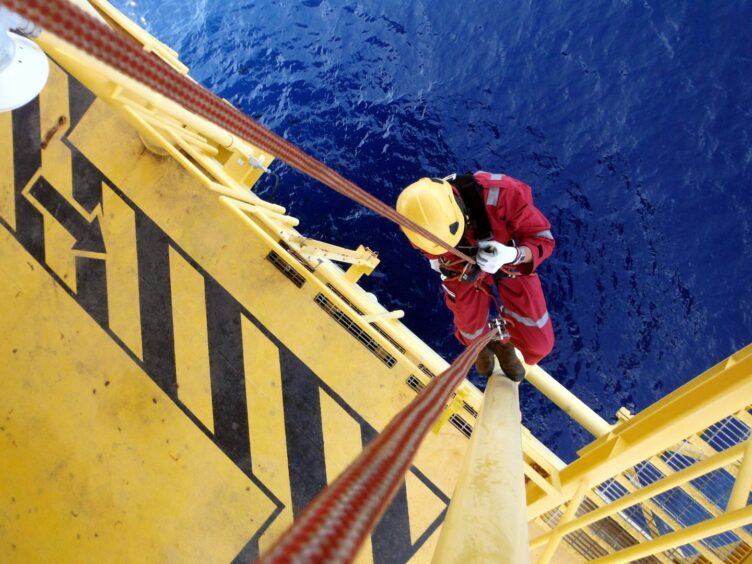
Shaun said staying motivated was particularly important during long periods away from friends and family.
“That can be someone’s motivation, when they’re working offshore and they’re missing their family,” he said.
“If they keep themselves in shape, they’re less likely to get injured. They’re happier, they go home, and they can spend that quality time with the family.”
Shaun said their goal with Offshore Fitness was to provide the tools for people to live an overall healthier lifestyle rather than simply losing weight.
“I think that’s a big part of what we’re trying to do is to not to just give people a workout but to educate people as well,” he said.
Dan said they were hoping for Offshore Fitness to mirror the health and safety objectives of the wider energy sector.
“It’s a bit like the company I work for, their motto is ‘everyone home safe’,” he said.
“I want everyone to go home fit and feeling great.”
Recommended for you


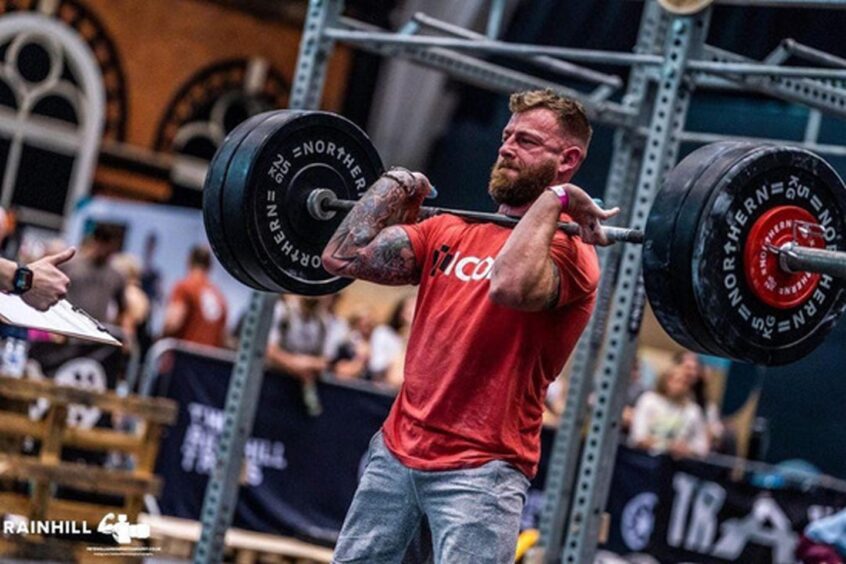 © Supplied by Dan Simpson
© Supplied by Dan Simpson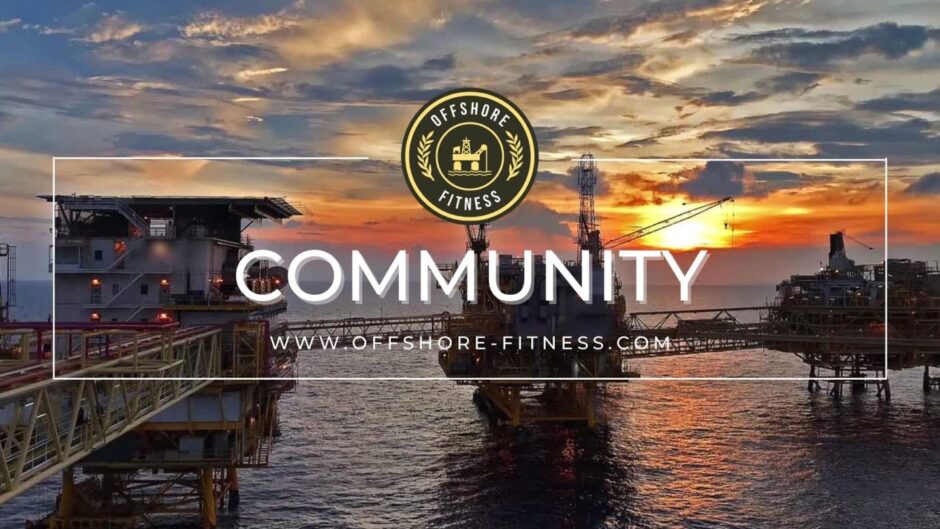 © Supplied by Dan Simpson
© Supplied by Dan Simpson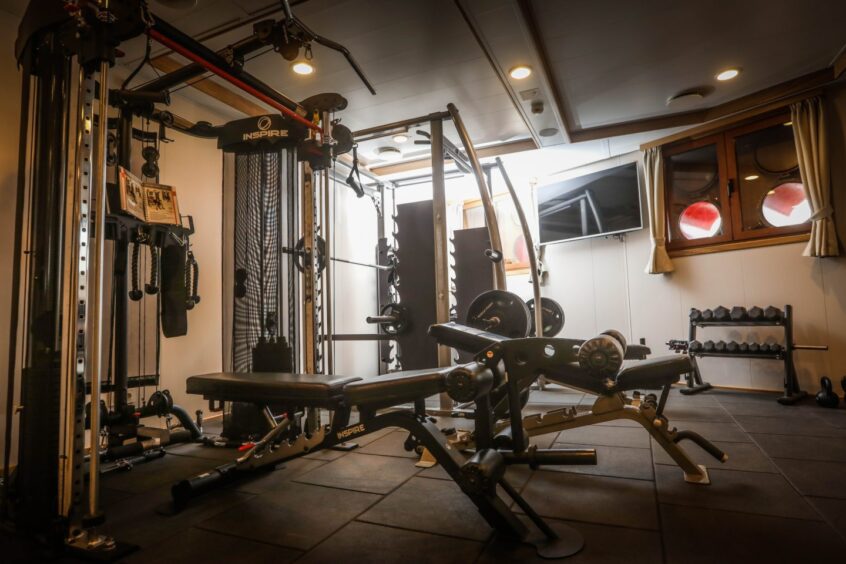 © Supplied by Mhairi Edwards/DC Th
© Supplied by Mhairi Edwards/DC Th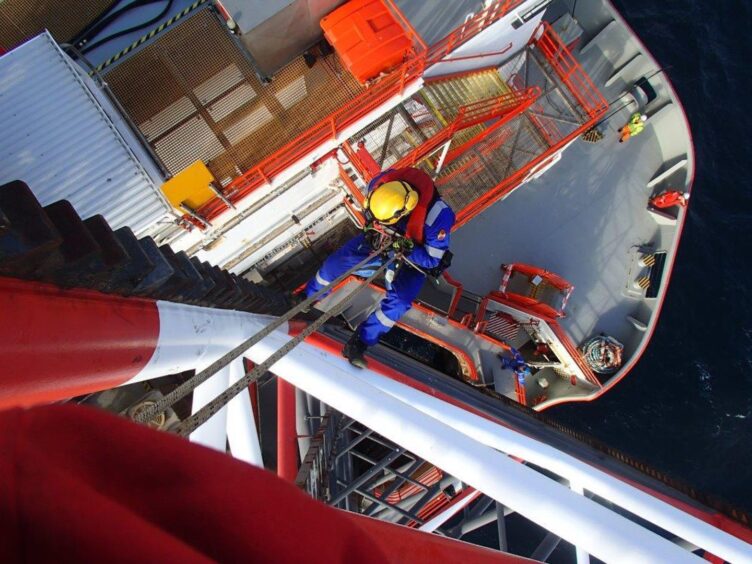 © Supplied by Dan Simpson
© Supplied by Dan Simpson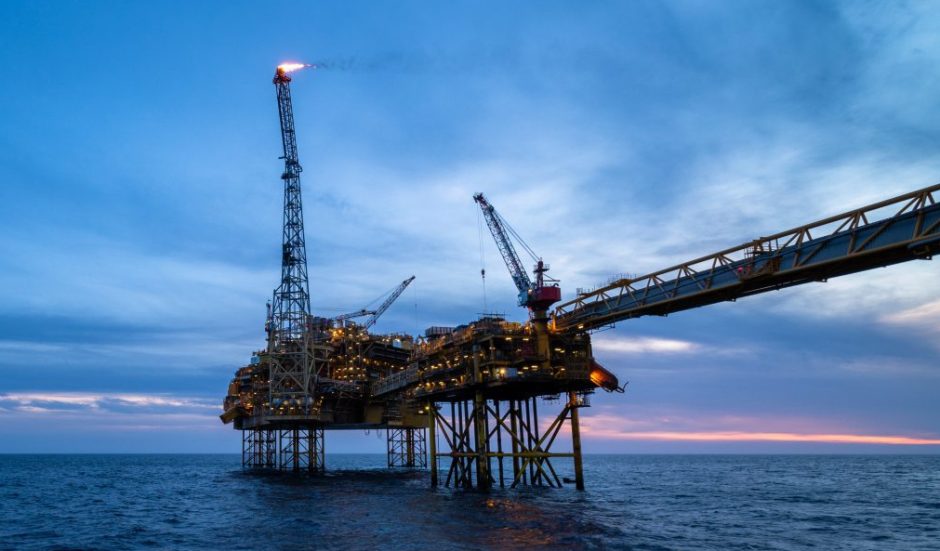 © Supplied by Shutterstock
© Supplied by Shutterstock